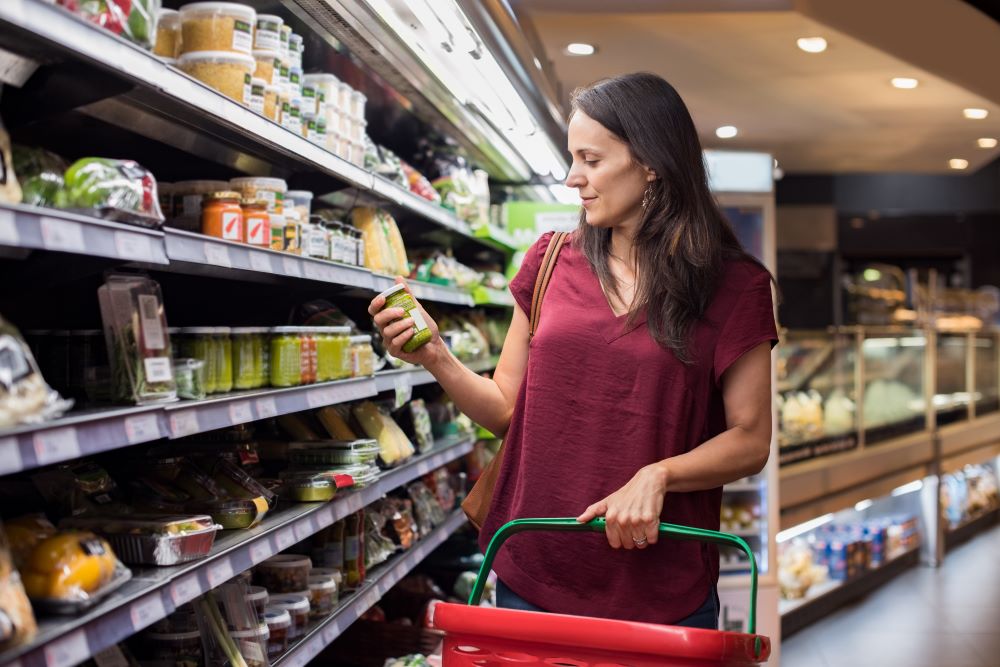
Preparation is vital for UK exporters looking to sell their food products in Europe, according to a panel of experts speaking at International Trade Week
The Department for Business and Trade (DBT) hosted a webinar for food and drink exporters aiming to enter European markets on Thursday (9 November).
Representatives from Italy, Spain, Belgium, the Netherlands and Germany offered attendees tips and tricks, as well as warnings of common pitfalls, on getting goods stocked on their country’s shelves.
Insights included market breakdowns and common barriers to entry, in addition to explaining how the British brand itself can help or hinder reaching Europe.
Popular products
In many European countries whisky was reported to be one of the most popular UK exports, with other spirits following closely behind.
Italy can’t get enough of British booze, with several trade shows across the country – such as the Milano Whisky festival in December, Verona’s Vinitaly and the Roma Bar Show – dedicated to alcohol products.
Yet this can be a double-edged sword. Italy representative Geraldine Williams noted that gin, the country’s second most popular UK export, is becoming an increasingly difficult market to crack.
Spain’s Beatriz Asua said the same was true of her country, which has high levels of UK tourism and expat communities in its eastern regions.
“If you want to succeed with any spirits, you need a lot of money. You need to compete with Tanqueray and Johnny Walker, which means acute investment in marketing.
“The supermarkets will not back a brand unless they’ve seen it succeed in the service sector, so it’s not an easy market.”
British branding
Many experts noted the strength of British branding could be both an asset and limitation.
Netherlands representative Erica Boyce noted that some of her team works hard to challenge “stereotypical perceptions” of what British food is in order to expand market access.
Pushing past historic ideas that British food culture is about ‘fish and chips’ and ‘high tea’, Boyce said both the Netherlands and Belgium value that the UK’s food and drink industry is “ahead of the curve”.
“The UK food and drink market is at the edge of innovation and transformation.
“Often what you see coming out in the UK comes at least five years later to Belgium, so buyers we go to London to spot new products.”
Distribution decisions
Across Europe the ease with which a product can reach consumers varies greatly, which several experts highlighted when advising attendees on which to select.
Williams emphasised that, while British products are popular, Italy’s “fragmented retail market makes it a challenge to export here”.
She explained that distributors often operate across only a couple of regions due to the extreme variation in taste across the country, warning exporters that from a market perspective they should consider Italy as not one country but 20.
Labels
The issue of labelling was highlighted by several experts.
Representatives for Belgium and the Netherlands said both countries’ populations speak English to a high level. Approximately 90% of Dutch people speak the language well, according to Boyce.
However, in the interests of inclusivity, product labels destined for Belgium shelves must contain vital information in all applicable languages, which also varies by region. Representative Martina Andersen recommended including French, Dutch and Germany as the bare minimum.
In Germany, the sell-by date, nutritional information and ingredients list must be included on the label in German.
Brexit challenges
While the webinar focused on the opportunities presented by exporting to Europe, additional challenges arising from Brexit were also mentioned.
Asua noted Spain is “quite tough in terms of exports” with 100% of goods being checked upon arrival. This means businesses must ensure all documentation is in order or face significant delays or fines.
Williams added that Brexit had led to importers setting higher standards for the companies they’re willing to work with, prioritising those that already have warehousing facilities and a legal seat on the continent and previous experience exporting to the EU, including handling multilingual labelling requirements.



